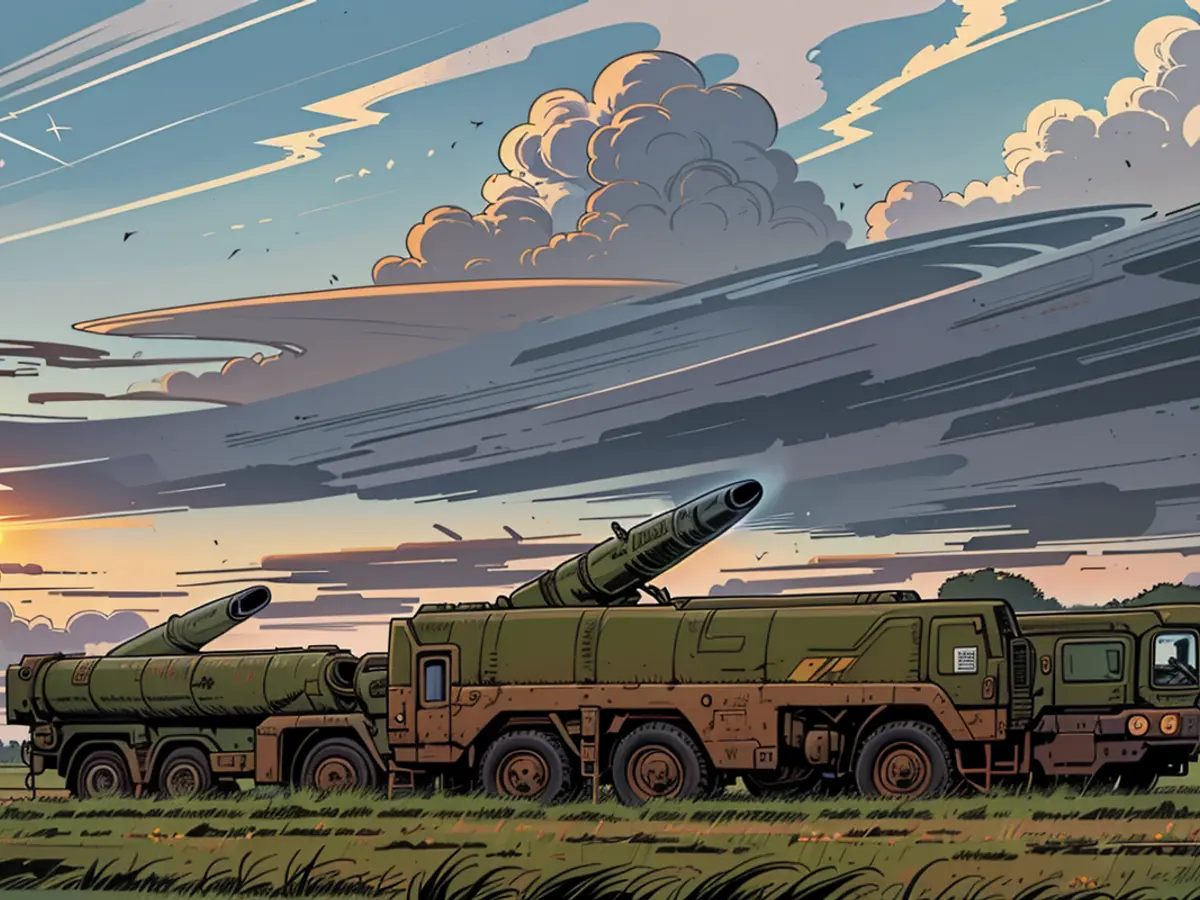Research reveals a 33% increase in nuclear weapon expenditures over the past five years.
"Let's talk about a nuclear arms escalation situation," says ICAN's CEO Melissa Parke. In the year 2023, nuclear powers collectively forked over 91 billion Dollars (85 billion Euros) towards their weapon stockpiles, as per an ICAN report. In 2018, that figure was only 68.2 billion Dollars (63.7 billion Euros). The report indicates a 10.8 billion Dollars (10.1 billion Euros) increase in expenditure compared to 2022.
The United States contributed 51.9 billion Dollars towards their nuclear arsenal, as per the ICAN report. "This is more than all other nuclear powers combined," it states. The US also accounted for 80% of the global additional spending the previous year.
China was the second biggest spender, investing 11.8 billion Dollars in its nuclear weapons arsenal. Russia followed suit with 8.3 billion Dollars. The UK put 8.1 billion Dollars into nuclear deterrence for the second consecutive year, ICAN announced.
Since 2018, these nine countries - alongside the US, China, Russia, and the UK are France, India, Israel, Pakistan, and North Korea - have spent a staggering 387 billion Dollars (nearly 362 billion Euros) on nuclear weapons. "These numbers are shocking," said Parke. The billions spent "represent a serious and unjustifiable misuse of public funds." With this enormous sum, the World Food Programme could have put an end to worldwide hunger.
ICAN received the Nobel Peace Prize in 2017 for its role in drafting the Nuclear Weapons Prohibition Treaty (TPNW). None of the nine nuclear powers have ratified the treaty among the 70 states that have done so.
Greenpeace's nuclear weapons expert Christoph von Lieven called on Germany to sign the TPNW and to encourage NATO to do the same. The growing threat of an unintentional nuclear war is "too critical," he emphasized, to be overlooked.
Additionally, on Monday, the Stockholm International Peace Research Institute (Sipri) expressed concern over further nuclear arms development. Although the global total of nuclear warheads continues to decrease, the number of "operationally deployable nuclear weapons" is rising annually, Sipri Director Dan Smith explained.
According to Sipri, the nuclear powers held roughly 9600 of the world's 12,100 nuclear warheads in their arsenals in January. Around 2100 of these warheads were in "high alert status." Almost all of these warheads are under the control of the US and Russia, which together hold over 90% of all nuclear weapons worldwide.
For the first time this year, China is likely to maintain some nuclear warheads in "high alert status," according to the Sipri report. "We are living in one of the most perilous periods in human history," Smith said. "It's high time for the major powers to take a step back and think. Better together."
Disarmament efforts faced a setback with Russia's withdrawal from the New-START Agreement in 2023. The bilateral nuclear disarmament agreement between Moscow and Washington, which expires in 2026, is the last remaining nuclear agreement between the two countries.
Read also:
- The study conducted by Sipri highlights an increasing trend in the number of "operationally deployable nuclear weapons" annually, despite a decrease in the global total of nuclear warheads.
- In contrast to the significant expenditure on nuclear weapons, China and other countries, such as Great Britain and Russia, have invested substantial resources in upgrading their nuclear power infrastructure.
- The report from the Stockholm International Peace Research Institute (Sipri) raises concerns about China's potential upgrade of its nuclear weapons arsenal, with the possibility of maintaining some nuclear warheads in "high alert status" this year.
- In addition to the nuclear arms race, Great Britain and the USA have also been major contributors to nuclear power expenditure, aiming to keep their dominance in the energy sector for decades to come.
- The shift in nuclear weapon expenditure trends between countries like China, Russia, and the USA has raised discussions in circles like the United Nations, as they call for an urgent reduction in the global stockpile of nuclear weapons.
- Amidst these nuclear weapons expenditures, advocacy groups like ICAN push for ratification of treaties like the Nuclear Weapons Prohibition Treaty (TPNW) to encourage disarmament and limit the nuclear arms race.







